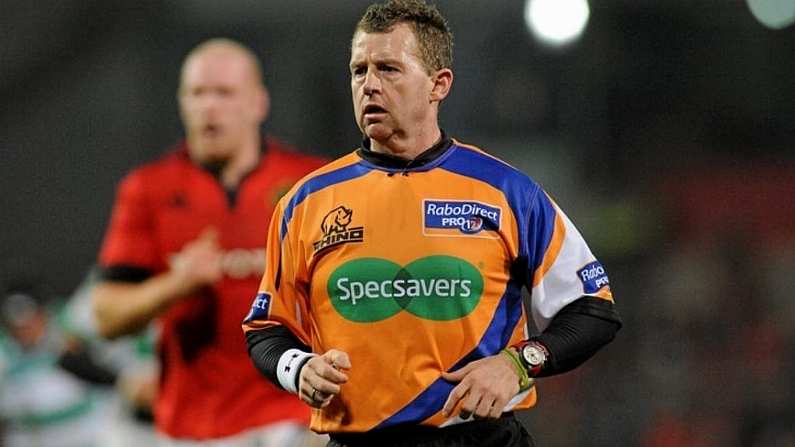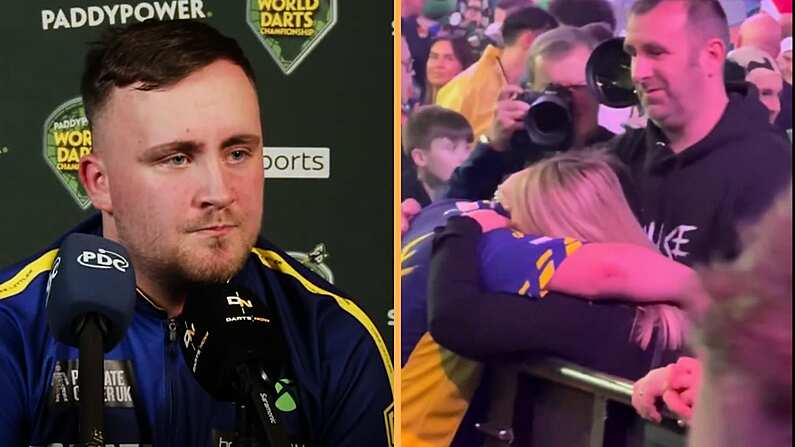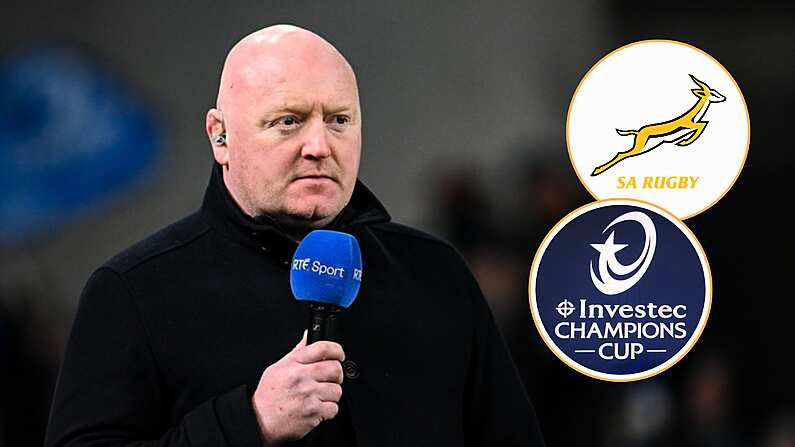Nigel Owens is under no expectations to speak about his sexuality, mental health or bulimia. The Welsh referee is at the top of his profession right now. He’s refereed in the World Cup, Pro12 and European Cup finals. He's been awarded an MBE and won a World Rugby Referee Award. In an ideal world, his public discussions would be on the intricacies of the game and his experience as the best referee on the planet.
But rugby plays a part in this. After all, it was after an overheard discussion about bulimia in a rugby club that allowed a teenage Owens realise his struggle was a diagnosed condition. It lingers still, waiting for his guard to drop.
The reason bulimia started was because I was dealing with my sexuality and mental health issues and it came because of that. I was also overweight.
Then when I was refereeing, I was quite aware I was carrying too much weight. I would say probably the pressures of my personal life are what triggered it. More recently, having accepted who I was, my sexuality and not having to worry or deal with it anymore, it was the pressure of referring at the top end.
Going to the World Cup in 2015 and having to pass fitness tests and stuff and knowing that, if I lost two or three kilos the fitness test would be much easier to do. It was doable for me to do, to pass it and get better results in it if I lost a couple of kilos. So, I said ‘I know how to lose a couple of kilos’ with my past experiences. I did it the wrong way rather than taking my time and dieting, I did it by bulimia coming back again. It's been there ever since really, until I did the BBC Panorama programme in June or July. I was speaking to some experts about bulimia and eating disorders, I said I need to stop this and took advice given to me then. I kept it in check until I fell back in the Christmas period.
Owens is speaking now because he recently had a relapse. For many, Christmas is a time to cut loose. A chance to switch off and indulge. When his weight crept up, he panicked and resorted to past experiences in order to deal with it.
Over 1.6 million people in the UK are estimated to be directly affected by eating disorders. Bulimia stems from a loss of control over eating habits. The National Association of Anorexia Nervosa and Associated Disorders (ANAD) consider it as much a mental disorder as an eating one.
According to ANAD, 15 percent of people being treated for bulimia and anorexia are male. Men are also less likely to exhibit noticeable symptoms or seek appropriate treatments. By speaking out, the Welshman is hoping to change that.
It's probably more to do with my worry about my body weight and not wanting to look fat. when I put a bit of weight on, I keep looking to see if people can see the weight through my clothes and what hangs over my belt. When I start watching it back, it gives me worry about my weight and wanting to get rid of it again. It’s probably the way that I look that sort of triggers it now.
I need to keep my fitness and stuff for referring as well. It’s the pressures of refereeing and keeping fit, just looking after my body and wanting to be in decent shape, like many other people. That's what triggers it now. My old mental health issues aren't there anymore to the same extent but bulimia is a mental health issue. It's something I’m battling with I guess.
Until appearing on a BBC programme last year, Owens had never consulted an expert about the condition. He is aware of the benefits that brought him and keen to pursue that avenue now that the symptoms have returned.
I need to speak to experts now and see what made me slip back into that bad habit. To see what made me binge-eat and then slip back. Was it the stress of taking too much on that made me lose it, or was it a bit of anxiety from taking too much work? Whatever it may be. Was I tired during that time? I need to sit down and see what triggered me into that habit and I need to address that.
One helpful aid to Owens has been social media and the knowledge available online now. Social media isn’t often associated with value in a situation like this. Yet Nigel is aware of the power of platforms, in every sense.
The problem isn't the social media itself, it is certain people who use that platform. People can't underestimate the power of individuals sharing their own experiences and their own stories. Whoever it is; a coach, players, anyone who is doing any sort of work, when they share their information it helps other people to better themselves. When people share their bad experiences, it helps people realise I’m not the only one going through this, you realise this guy or this lady is going through it. It helps you understand it more.
What drives his decision to speak out is honesty. Honesty that will hopefully inspire change and hope. It's okay to talk to talk about it, and it can really help.
It's pointless me going on and not being honest, if those people who are suffering with any mental health issues or eating disorders, the first thing to do is be honest with yourself. You have to accept it, and admit it to yourself. I do that publicly because I know it helps people. It gives me no pleasure that people will write about this; I have bulimia again. I read an article and think ‘oh, here we go again.’
But it has to be done.
If you are affected by any of the issues discussed in this article, here are some useful phone numbers that will help.
Samaritans: (01) 671 0071
Bodywhys: 1890 200 444
Aware: 1800 80 48 48










